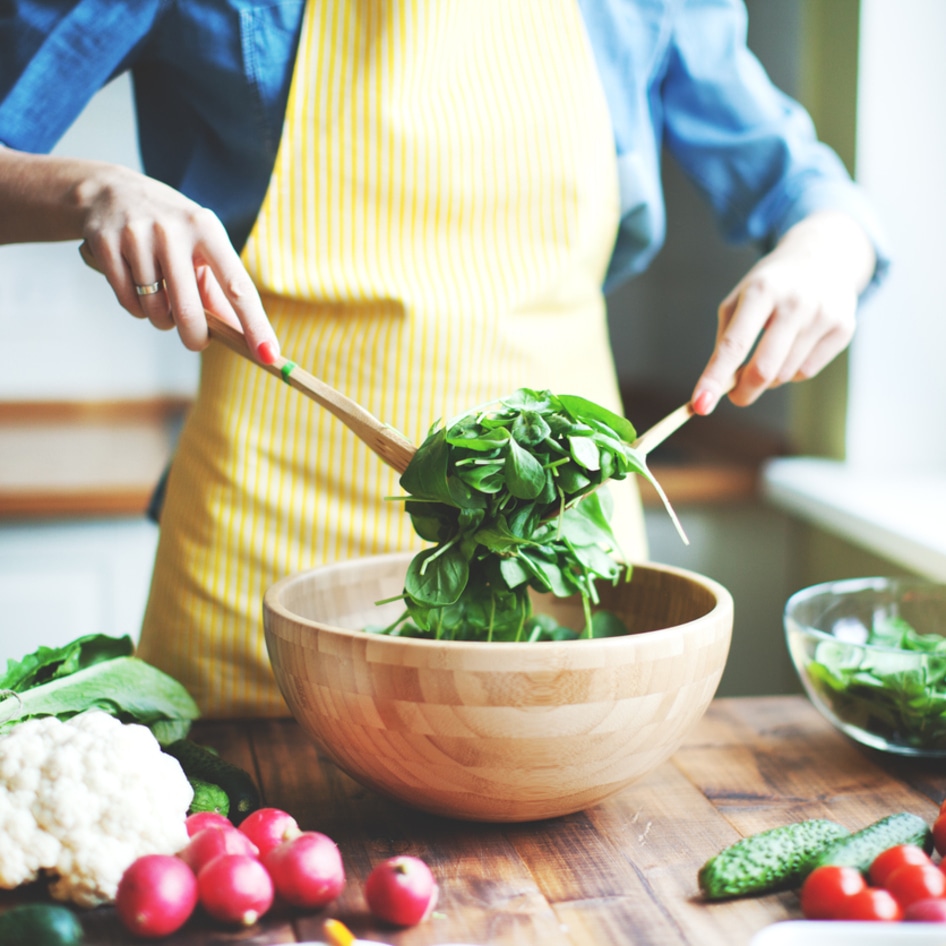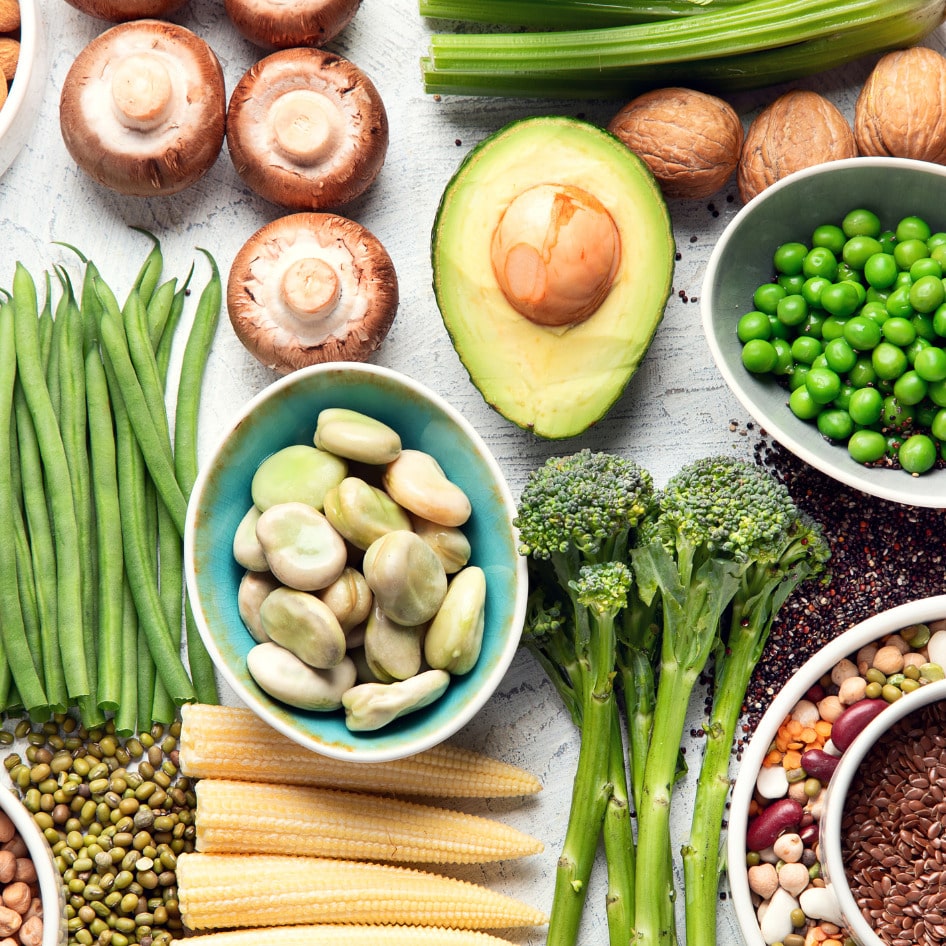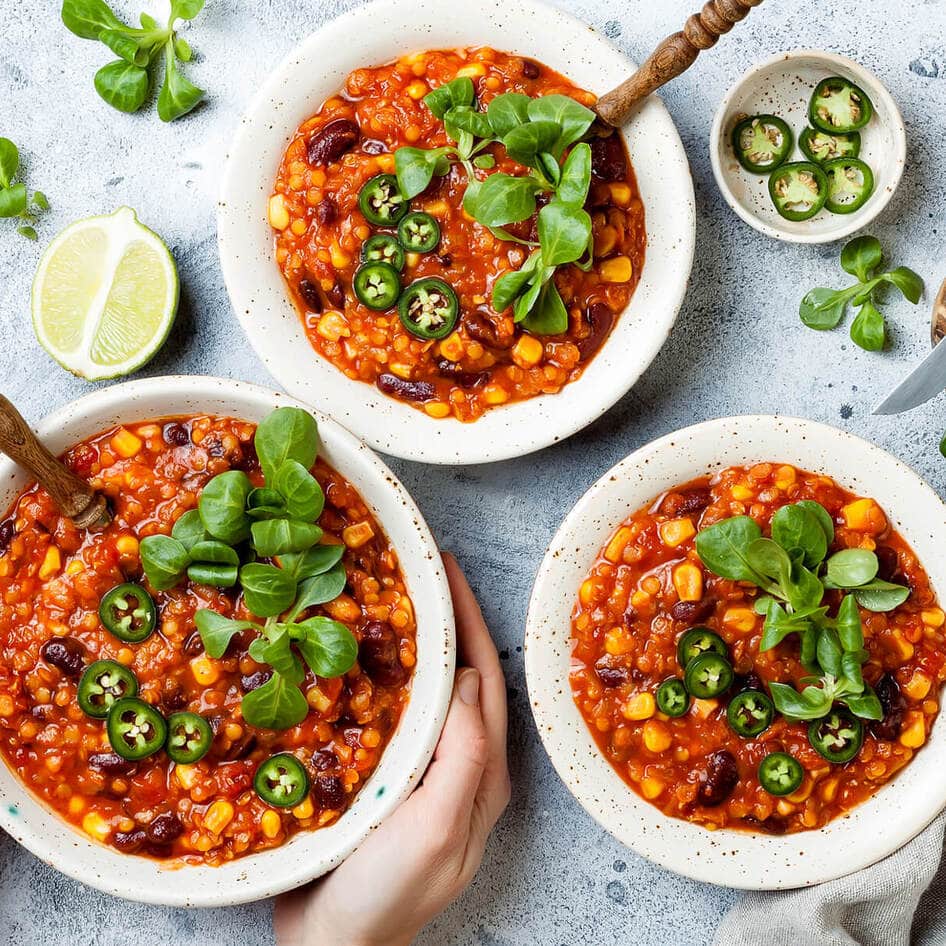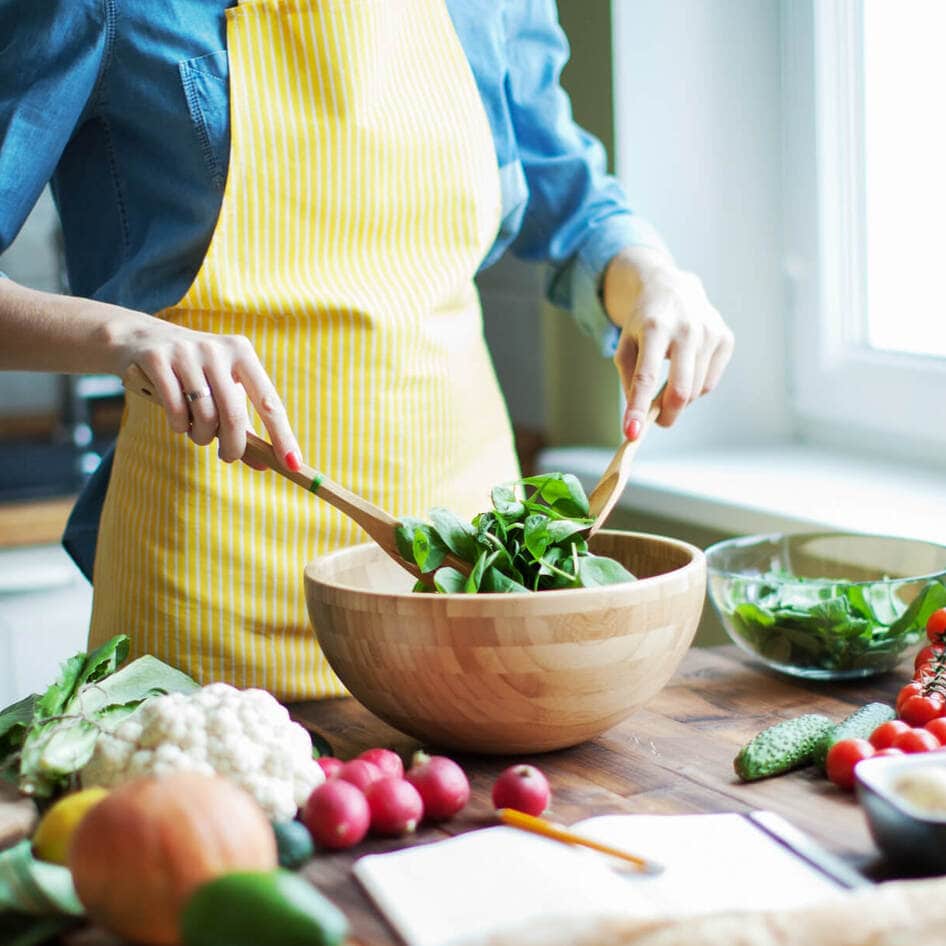3 Vegan Myths Debunked
Veg diets lack protein? Says who?! Here are a few factoids for veggies new and old.
May 25, 2016
Now that you’ve resolved to go vegetarian, phase two of your new-year plan should be arming yourself with veg-related factoids. Why? Because friends, family, and even random strangers are guaranteed to quiz you, grill you, and otherwise bombard you with questions about your new-and-improved lifestyle. Do a bit of myth-busting and show ’em what they’re missing by memorizing a few of these fascinating factoids.
Myth: A vegetarian diet lacks sufficient protein, calcium, and iron.
Truth: A well-balanced vegetarian diet certainly can provide enough of these nutrients. What we don’t hear too often is that any poorly planned diet—meat-centered or not—can lack adequate nutrients. For well-fed vegetarians, protein, calcium, and iron are rarely issues. Beans, lentils, and soy are the protein standbys, although protein is also found in vegetables and starches. As long as we consume enough calories from a variety of foods, protein needs are easily met.
Roughly two-thirds of the world has difficulty digesting milk, making the majority of us reliant upon non-dairy calcium sources. Indeed, nuts and seeds, tofu, beans, leafy greens, and other foods contain calcium, and many plant sources are actually better absorbed by the body than the kind found in cows’ milk. Even if your vegetarian diet isn’t pristine, it’s easy to get enough calcium from fortified vegan sources like cereals, juices, energy bars, and soymilk.
Myth: Vegetarians only eat salad.
Truth: From vegetable-topped pizza and pasta primavera to succulent stir-fries and vegetable curries, today’s vegetarians should have no trouble finding something delicious and nutritious to eat. More and more restaurants are adding veg options to their menus, and many of today’s veg eateries have gone upscale, offering dishes that would dazzle even the most discriminating palates. We’d like to also rid the world of the myth that vegetarians arrange their plates with a pile of plain veggies beside a pile of rice. Give us a maple-roasted acorn squash stuffed with wild rice-pecan-currant pilaf instead of a pile of steamed veggies and a scoop of rice any day.
Myth: Being vegetarian is time-consuming and difficult.
Truth: Just as omnivores typically don’t pluck their own chickens and make their own cheese from their own cow (that they milked by hand), vegetarians don’t necessarily prepare nine-course meals from scratch every night. We get a bit of help using healthy convenience foods such as wholesome breads, quick-cooking grains, ready-to-eat cereals, frozen chopped veggies, bagged salads, canned beans, baking mixes, jarred nut butters, prepared herbs and spices, veggie burgers and other faux meats, sauces, and more. With a little imagination, a healthy, meat-free meal can be prepared in minutes.
Oh, Really?
Vegetarians have a lower risk of:
Obesity
Cardiovascular disease
Stroke
Hypertension
Diabetes
Cancer (certain types)
Diverticular disease
Kidney disease
Gallstones
JUMP TO ... Latest News | Recipes | Guides | Health | Subscribe







